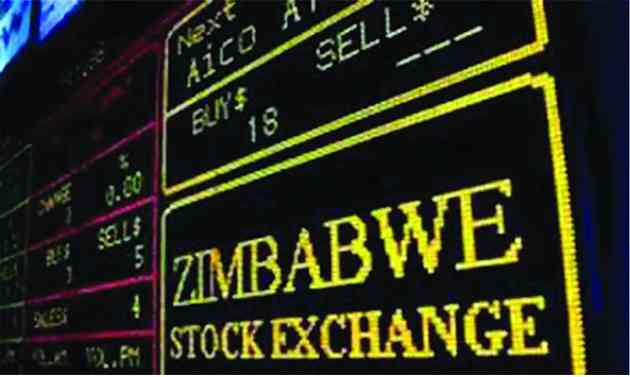
THE Zimbabwe Stock Exchange (ZSE) has been a rollercoaster ride for investors, with wild swings in value driven by market sentiment and speculation. Since the beginning of February 2024, the ZSE has been on an extremely volatile streak, resulting in a dramatic reversal of gains made earlier in the year.Thisraises concerns on future prospects of the market.
At the start of the year, the ZSE was on a bull-run. The all-share index surged an impressive 61% as at the 2nd of February 2024, closing at a record high of 542,743.66 points. Local investors were drawn to the market as a hedge against hyperinflation and currency instability, while foreign investors were drawn to the enormous gains that could be garnered in a short-period amid high volatility.
In perspective, ZWL inflation grew 54% in January while the interbank exchange rate depreciated by -40% against the US$. The rapid depreciation of the Zimdollar against the US$ prompted many to alternatively seek value preservation in stocks as the greenback grew scarce.
However, the euphoria was short-lived as the ZSE plunged violently as sentiment shifted. Since the beginning of February, the ZSE All Share Index has dipped -27% in US$ terms, trimming the year-to-date growth from 61% to 14% as at the 19th of February 2024.
The bourse slipped from being the best performing bourse in Africa on a ROI basis, to being the second best in the region. The decline was fueled by a few factors which mainly include profit-taking induced sell-offs and fears of value erosion from the uncertain monetary and fiscal policy changes along with anticipated new currency-markets measures.
In the first half of 2022 and 2023 respectively, the Central Bank implemented and revised contractionary monetary policy measures to mop up excess liquidity, subsequently reducing demand for safe-haven assets like the US$ and ZWL stocks. The stringent measures led to a bloodbath on the ZSE in the second half of 2022 and 2023 apiece. This trend has indicated to be repeating itself in 2024, with the expanding money supply boosting demand on the ZSE.
The government has since announced its plans to revisethe monetary policy and implement new currency-related measures. This has sparked speculation of a repeated tightening of the monetary policy, which would further plunge the market as seen in 2022 and 2023.
For stability on the ZSE and other ZWL denominated financial markets, the RBZ ought to implement long-term monetary policies, while simultaneously aligning the formal currency market with free market forces.
- Teachers, other civil servants face off
- Veld fire management strategies for 2022
- Magistrate in court for abuse of power
- Vungu Dam water treatment and irrigation project takes off
Keep Reading
The inconsistency in monetary policy causes fluctuations in money supply, which directly impacts overall demand in the economy, particularly on the ZSE. The government’s tradition of making major policy shifts every half year has proved to have dire consequences on both the overall economy and the financial market, and therefore the RBZ ought to strike a balance between instilling sanity/stability on the economic pillars through policies, and ensuring economic growth.
The ZSE, on the other hand, is also susceptible to a major downfall in the first-half of 2024, wholly reversing the current year-to-date positive position. This is due to the promised new currency market measures to be implemented in due time by the government, along with policy changes.
While the policy and currency measures have not been hinted on to fully project direction and nature of measures, the government’s aim of stabilizing exchange rate will inevitably come with a control on money supply, which included tightening liquidity levels to an extend that negatively weigh on overall spend in the economy, hence an inevitable recession on the ZSE as demand falls.
Assuming a new currency comes in the picture as speculated, confidence levels will also weigh on sentiment and equally plunge the market.
Duma is a financial analyst and accountant at Equity Axis, a leading media and financial research firm in Zimbabwe. — [email protected] or [email protected], Twitter: TWDuma_







